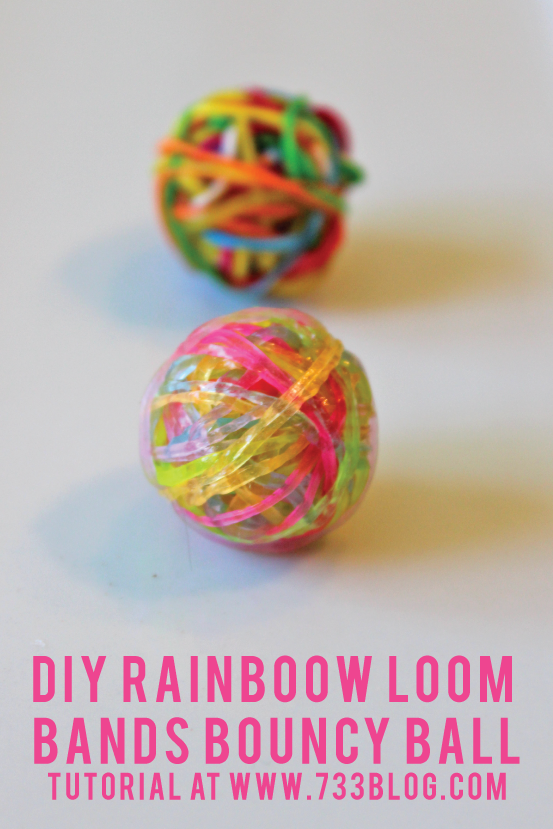How much salt to float an egg
How Much Salt To Float An Egg. Density refers to how much matter is contained within a certain volume. In order for an egg to float about 4 tablespoons of salt must be dissolved in 12 to 16 ounces of water. An egg usually sinks in water because its density is greater than the density of water. The reason i m doing this is to see how much salt it takes to make an egg float.
 Timothy Bui Is One Of A Few Students Asking How Salty Does Water Have To Be For An Egg To Floa Science Projects Kids Science Fair Projects Science Fair Board From pinterest.com
Timothy Bui Is One Of A Few Students Asking How Salty Does Water Have To Be For An Egg To Floa Science Projects Kids Science Fair Projects Science Fair Board From pinterest.com
The density of the average egg will be slightly greater than that of water so it will sink. How much salt does it take to float an egg. To make it a true science experiment create a data table to keep track of how much salt you add to the solution. The density will increase with the amount of salt you are adding. To make the egg float we have to make the water more dense by adding salt. Salt adds mass while adding very little volume so it is a good additive to make the density higher.
Density refers to how much matter is contained within a certain volume.
Remove your object and keep adding salt until you can get your object to float. You should see almost no salt crystals at the bottom of the glass when salt dissolves in water it sticks to the water molecules fitting between them and even pulling them closer together. Density refers to how much matter is contained within a certain volume. For every millileter of water we will need to add 0 031 grams of salt to match the density of the egg. In a nice clean container filled with 2 cups of water at least 8 teaspoons of salt are needed to make an egg float. Remove your object and keep adding salt until you can get your object to float.
 Source: pt.slideshare.net
Source: pt.slideshare.net
The density will increase with the amount of salt you are adding. Remove your object and keep adding salt until you can get your object to float. An egg usually sinks in water because its density is greater than the density of water. My hypothesis is that it will take 3 cups of salt to make an egg float. Add salt a tablespoon at a time and mix well until you cannot see any salt in the solution then add your object to see if it floats or sinks.
 Source: pinterest.com
Source: pinterest.com
To make it a true science experiment create a data table to keep track of how much salt you add to the solution. To make it a true science experiment create a data table to keep track of how much salt you add to the solution. Remove your object and keep adding salt until you can get your object to float. The density of the average egg will be slightly greater than that of water so it will sink. In a nice clean container filled with 2 cups of water at least 8 teaspoons of salt are needed to make an egg float.
 Source: m.youtube.com
Source: m.youtube.com
For every millileter of water we will need to add 0 031 grams of salt to match the density of the egg. To make the egg float we have to make the water more dense by adding salt. But if you add enough salt to the water the egg will actually float back up to the. For 1 cup of water adding 3 tbsp. I plan to put a pot of water and see how much salt it takes for an egg to.
 Source: youtube.com
Source: youtube.com
For every millileter of water we will need to add 0 031 grams of salt to match the density of the egg. Density refers to how much matter is contained within a certain volume. Stir about 6 tablespoons 90 milliliters of salt into the glass of water. In a nice clean container filled with 2 cups of water at least 8 teaspoons of salt are needed to make an egg float. I may use the internet and materials around my house.
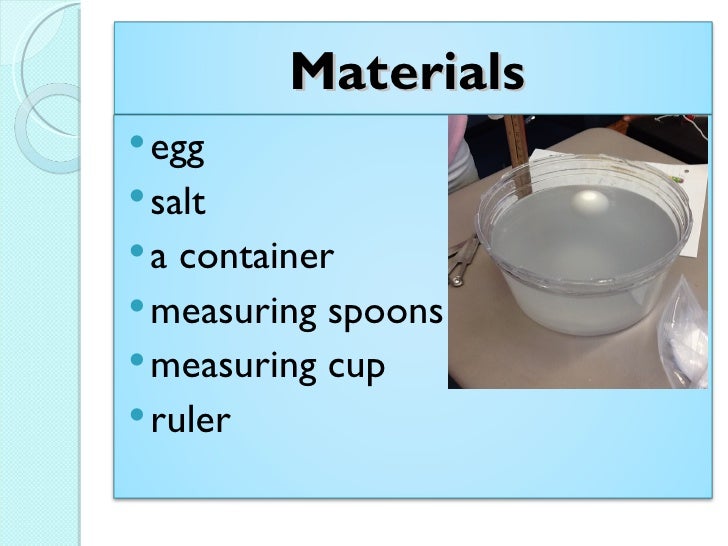 Source: slideshare.net
Source: slideshare.net
To make the egg float we have to make the water more dense by adding salt. To make it a true science experiment create a data table to keep track of how much salt you add to the solution. For 1 cup of water adding 3 tbsp. In order for an egg to float about 4 tablespoons of salt must be dissolved in 12 to 16 ounces of water. My hypothesis is that it will take 3 cups of salt to make an egg float.
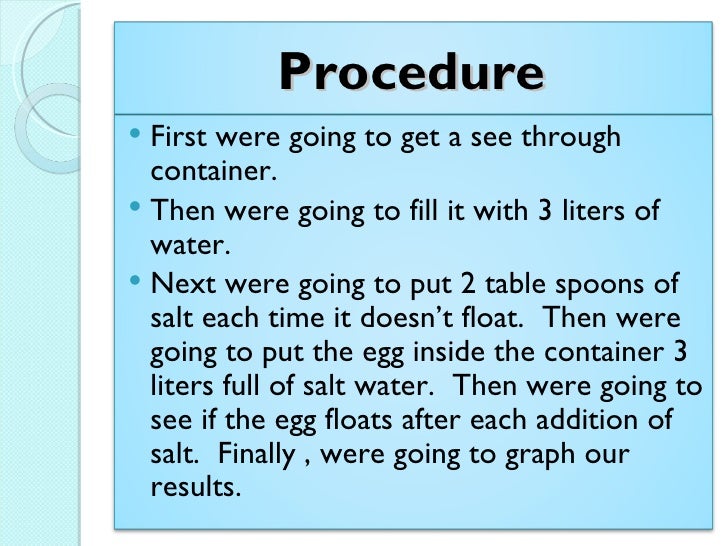 Source: slideshare.net
Source: slideshare.net
Adding salt increases the mass but volume stays constant. My hypothesis is that it will take 3 cups of salt to make an egg float. For every millileter of water we will need to add 0 031 grams of salt to match the density of the egg. To make it a true science experiment create a data table to keep track of how much salt you add to the solution. Stir about 6 tablespoons 90 milliliters of salt into the glass of water.
 Source: slideplayer.com
Source: slideplayer.com
In a nice clean container filled with 2 cups of water at least 8 teaspoons of salt are needed to make an egg float. Add salt a tablespoon at a time and mix well until you cannot see any salt in the solution then add your object to see if it floats or sinks. Typically fresh eggs sink to the bottom of a glass of tap water. To make it a true science experiment create a data table to keep track of how much salt you add to the solution. Lets say you want the egg to float in 1 liter of water you would need 31 grams of salt.
 Source: prezi.com
Source: prezi.com
You should see almost no salt crystals at the bottom of the glass when salt dissolves in water it sticks to the water molecules fitting between them and even pulling them closer together. To make it a true science experiment create a data table to keep track of how much salt you add to the solution. You should see almost no salt crystals at the bottom of the glass when salt dissolves in water it sticks to the water molecules fitting between them and even pulling them closer together. Stir about 6 tablespoons 90 milliliters of salt into the glass of water. In order for an egg to float about 4 tablespoons of salt must be dissolved in 12 to 16 ounces of water.
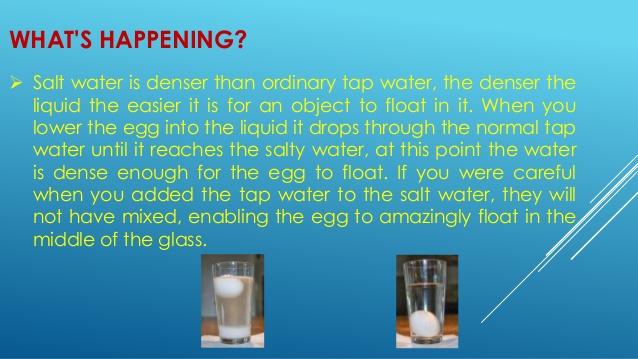 Source: picsart.com
Source: picsart.com
Typically fresh eggs sink to the bottom of a glass of tap water. Remove your object and keep adding salt until you can get your object to float. To make the egg float we have to make the water more dense by adding salt. But if you add enough salt to the water the egg will actually float back up to the. Of salt should be about enough to make the egg float.
 Source: sciencefun.org
Source: sciencefun.org
The density will increase with the amount of salt you are adding. Keep stirring until almost all the salt dissolves. How much salt does it take to float an egg. To make the egg float we have to make the water more dense by adding salt. Typically fresh eggs sink to the bottom of a glass of tap water.
 Source: pinterest.com
Source: pinterest.com
Typically fresh eggs sink to the bottom of a glass of tap water. I plan to put a pot of water and see how much salt it takes for an egg to. Stir about 6 tablespoons 90 milliliters of salt into the glass of water. Keep stirring until almost all the salt dissolves. Typically fresh eggs sink to the bottom of a glass of tap water.
 Source: pinterest.com
Source: pinterest.com
For every millileter of water we will need to add 0 031 grams of salt to match the density of the egg. For example the density of freshwater under standard conditions is approximately one gram per cubic centimeter. Stir about 6 tablespoons 90 milliliters of salt into the glass of water. In order for an egg to float about 4 tablespoons of salt must be dissolved in 12 to 16 ounces of water. To make it a true science experiment create a data table to keep track of how much salt you add to the solution.
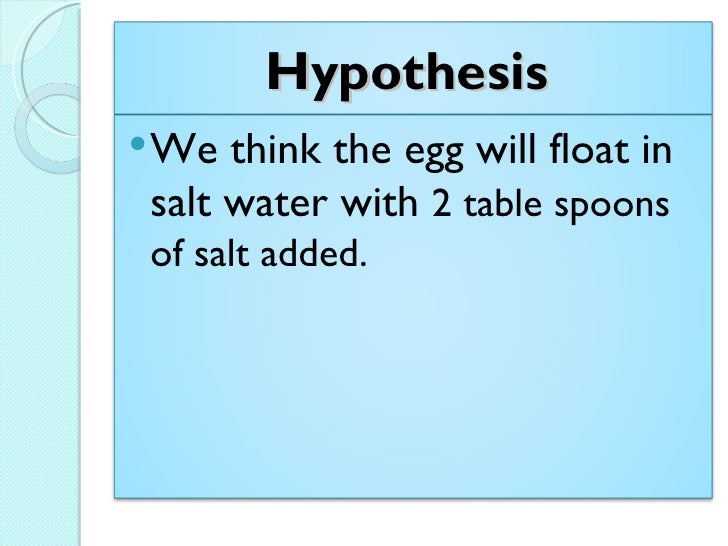 Source: slideshare.net
Source: slideshare.net
In a nice clean container filled with 2 cups of water at least 8 teaspoons of salt are needed to make an egg float. To make the egg float we have to make the water more dense by adding salt. In a nice clean container filled with 2 cups of water at least 8 teaspoons of salt are needed to make an egg float. You should see almost no salt crystals at the bottom of the glass when salt dissolves in water it sticks to the water molecules fitting between them and even pulling them closer together. I may use the internet and materials around my house.
 Source: pinterest.com
Source: pinterest.com
In order for an egg to float about 4 tablespoons of salt must be dissolved in 12 to 16 ounces of water. Keep stirring until almost all the salt dissolves. In a nice clean container filled with 2 cups of water at least 8 teaspoons of salt are needed to make an egg float. In order for an egg to float about 4 tablespoons of salt must be dissolved in 12 to 16 ounces of water. How much salt does it take to float an egg.
 Source: sciencebuddies.org
Source: sciencebuddies.org
In a nice clean container filled with 2 cups of water at least 8 teaspoons of salt are needed to make an egg float. For example the density of freshwater under standard conditions is approximately one gram per cubic centimeter. Of salt should be about enough to make the egg float. The density will increase with the amount of salt you are adding. Salt adds mass while adding very little volume so it is a good additive to make the density higher.
If you find this site good, please support us by sharing this posts to your own social media accounts like Facebook, Instagram and so on or you can also bookmark this blog page with the title how much salt to float an egg by using Ctrl + D for devices a laptop with a Windows operating system or Command + D for laptops with an Apple operating system. If you use a smartphone, you can also use the drawer menu of the browser you are using. Whether it’s a Windows, Mac, iOS or Android operating system, you will still be able to bookmark this website.

